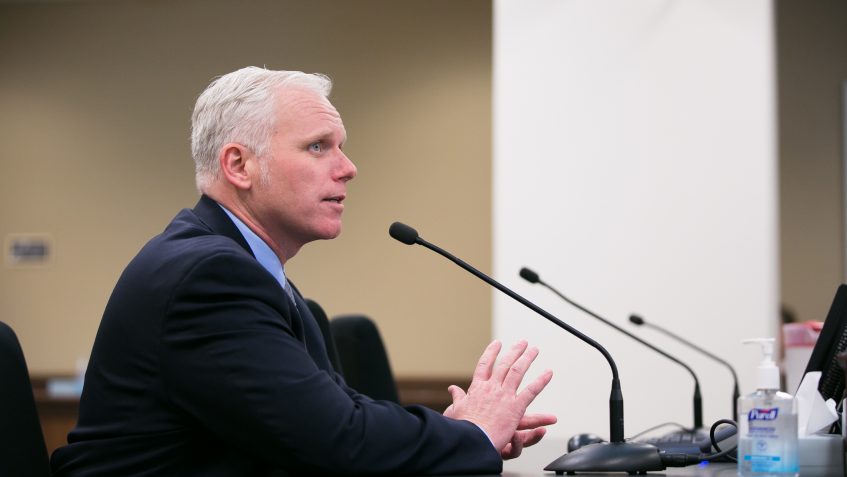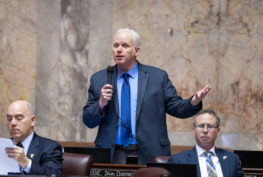Public health and environmental stewardship top Sen. Kevin Van De Wege’s priorities list as the 2019 legislative session wraps up its second week.
Tobacco 21, legislation to raise the legal age for purchasing tobacco products to 21, has already passed out of the Senate Health & Long Term Care Committee on which Van De Wege serves, and could be one of the first bills to go to the Senate floor for a vote.
“The longer people wait to start smoking, the less likely they are to take up the habit; study after study confirms this,” said Van De Wege (D-Seqium). “Delaying the ability to purchase tobacco for just a few years will save lives and prevent chronic illnesses.”
Another bill Van De Wege supports, Senate Bill 5345, would require health insurance plans to cover a wider range of options for women who undergo the removal of a cancerous breast. Under this legislation, a woman could elect to have her other breast removed in order to remove the risk of cancer developing there as well, or have both breasts reconstructed to maintain body symmetry.
“When a woman is dealing with a serious illness, whether or not she feels comfortable with her body can be hugely important,” Van De Wege said. “Which option she chooses isn’t important; what’s important is that she gets to choose the option that’s right for her.”
Van De Wege is focusing on the health of orcas, meanwhile, by sponsoring legislation and serving on a task force that develops recommendations for short- and long-term actions to reverse the rapid decline of the resident orca population in south Puget Sound waters. That population is at its lowest in 35 years.
“While my colleagues and I consider bills to implement recommendations the task force developed in 2018, we also need to continue to identify and address emerging threats to orca health,” said Van De Wege, who chairs the Senate Agriculture, Water, Natural Resources & Parks Committee. “We’re in a race to clean up the orcas’ habitat, increase the number of salmon, and provide a healthier environment for all marine life.”
One effort to help orcas, Senate Bill 5578, would position the state to determine whether current protections against oil spills are adequate or should be increased, whether by adding additional tugs to guide tankers through vulnerable waters or by adopting other safeguards.
“An oil spill can be devastating to orca populations,” Van De Wege said. “It’s essential that we periodically assess whether our existing safeguards are adequate or need to be increased to make sure our orcas and other marine life aren’t at high risk.”




